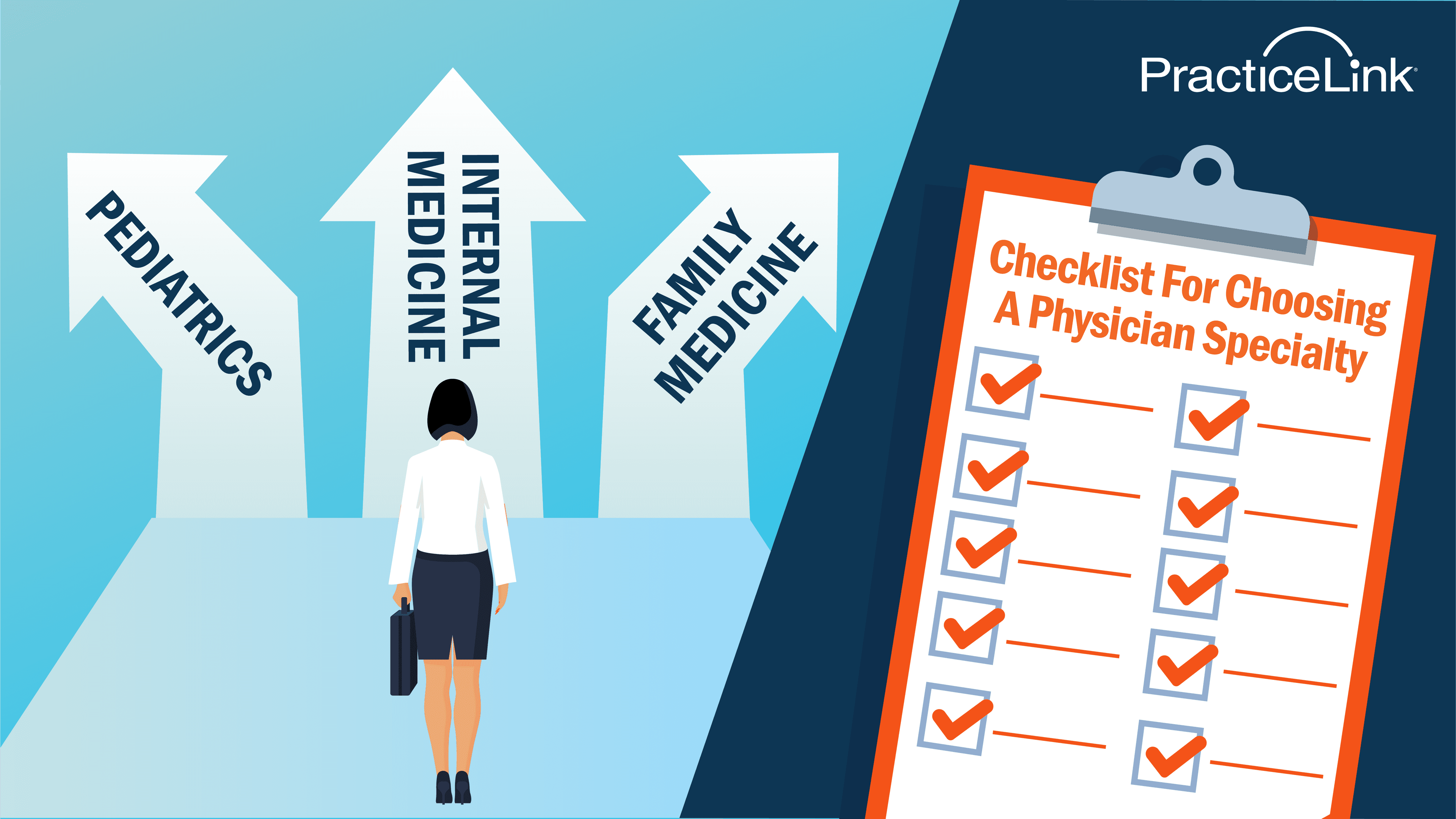
Choosing a physician specialty
One of the most important decisions you will make during your career as a physician is selecting a specialty. This one choice will determine the trajectory of your professional life, the type of patients you will treat, the schedule you will work and even the type of lifestyle you will lead.
Here are ten considerations to keep in mind when choosing a physician specialty:
1. Personal interests and strengths
Among the most important items to consider are what subjects and clinical rotations excite you the most. Do you enjoy the hands-on approach of surgery, the diagnostic mystery that can come with internal medicine or the long-term relationship you can build with your patients during family medicine? Your passion for a particular field can sustain you through the challenges of residency and beyond.
2. Work-life balance
Give serious thought to how your chosen specialty might align with your personal life and long-term goals, because different specialties offer vastly different types of work-life balance. Consider whether you want a predictable schedule, such as those typically offered by office-based specialties such as dermatology or ophthalmology, or if you’re an adrenaline junkie that likes the rush of emergency medicine where shifts might be far more irregular.
3. Patient population
Think about the types of patients you want to work with. Pediatrics, geriatrics, women’s health and oncology all cater to very different patient demographics. Think about whether you prefer working with a specific age group or if you want to engage with a broader spectrum of patients.
4. Income potential
While passion for a specialty should be your primary driver, when considering a specialty, don’t forget to balance your financial goals with your interests and lifestyle preferences. Some specialties – like orthopedics and radiology – are known for higher compensation, while others – such as pediatrics – have traditionally been less lucrative.
5. Job market and demand
It’s crucial to research the demand for your chosen specialty in the regions where you are most interested in practicing. Some areas have higher needs for certain specialties, which can affect job availability, negotiating power and job security.
6. Residency length and intensity
Assess your willingness to commit to potentially extended years of intense training, since specialties can vary in the length and rigor of their residency programs. For instance, surgical specialties often require longer, more demanding training compared to primary care fields.
7. Scope of practice
Consider the scope and variety of procedures and cases you’ll encounter. Are you looking for diverse challenges? Perhaps general surgery or emergency medicine would be a good choice. Alternatively, if you prefer focusing on a specific area, such as cardiology or neurology, that could guide your decision.
8. Mentorship and networking opportunities
Having strong mentors can provide valuable guidance and open doors for career opportunities. Consider the availability of mentors and professional networks in the specialties that interest you most.
9. Geographic preferences
Reflect on where you’d like to live and how it aligns with the specialty you’re considering. Some specialties, such as family medicine, may have more opportunities in rural settings, while others tend to be more prevalent in urban areas.
10. Future trends in medicine
Keep yourself up to date about emerging trends and technologies that might impact various specialties. For example, telemedicine is finding an increasing foothold in medicine, which might influence your choice if you’re interested in a specialty that can leverage this technology.
Choosing a specialty is a deeply personal decision that should be made with careful consideration of your interests, career goals and lifestyle preferences. So, take the time to seek advice from mentors, explore your options and consider where you see yourself thriving as a physician.

